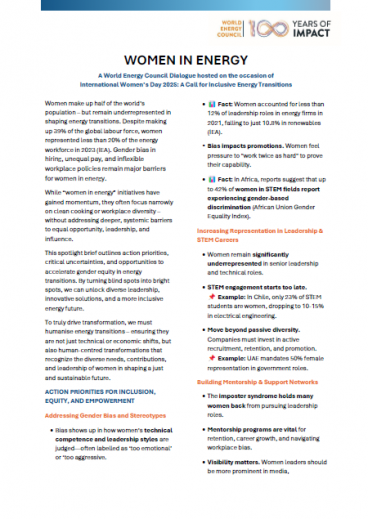The future market is set to be a two-way system made up of billions of interacting endpoints: everything from smart plugs, smart meters, solar PV systems to digital customer platforms, just to name a few.
Leading energy and blockchain experts from major utilities as well as aspiring start-ups met at the Global Summit on Blockchain Technology in the Energy Sector in Vienna on 14 and 15 February, to discuss this blockchain and its disruptive potential, which was supported by the German member committee of the World Energy Council as a conference partner.
Dr Christoph Frei, Secretary General of the World Energy Council, gave the keynote opening speech of the first day, revealing the importance of blockchain in the global perspective of energy and referred to it as the missing link in the energy system.
Ed Hesse, founder of GridSingularity and host of the conference, emphasised the benefit of security in the application of blockchain: “If energy is the heart of a society, a blackout is like a heart attack. However, the final technology is not yet there and it is not clear where the future will lead us. In the energy sector blockchain evokes various applications and new business ideas. It will hurt. It will relieve. It will enable,“ he said.
EventHorizon was the first international congress on blockchain in energy. 500 participants including IT and energy experts from 36 countries around the world accepting the invitation from GridSingularity, the start-up who created the event.
Blockchain has disruptive potential for the energy industry. Applications are being explored globally and a new ecosystem of energy startups is emerging. Industry uses of this technology are vast as it leverages decentralised peer-to-peer internet technology, where both computers and people share a distributed ledger. Companies from Australia, Austria, Germany, the USA, South Africa and the Netherlands, among many others, all explore various applications across the grid and behind-the-meter. In terms of utility involvement within the energy space many more pilot partnerships emerge with utilities.
The various possibilities to apply blockchain in the energy sector where presented by representatives from utilities, start-ups and from scientists. The German energy agency Dena presented the results of a survey within the energy sector which identified about 107 different cases of application of blockchain in the energy sector, as a tool in processes or platforms.
Blockchain could be the missing tool, according to Michael Hübner from the Austrian Ministry of Transport, Innovation and Technology. In his welcoming remarks he refers to jazz music as a way of interaction among single musicians.
To enable this interaction, it needs the “groove” as connecting element. In the case of blockchain, this would be the so called “smart contract”: automatically executed contracts on the basis of a cryptographic algorithm. This allows transaction among two parties without an intermediate entity.
The validation and record of the transaction history follows a decentralised consensus within a network. Various transactions are recorded in one data block which is then disposed in a chain – the so called blockchain. Important benefits from this process is the decentralised record of data on various computers of the network and the resistance of modification of the history of data which improves the security and transparency. Moreover, transaction costs could be lower than in the case of an intermittent agent.
Vitali Buterin, inventor of the blockchain language Etherium, sees the trend of decentralisation in the energy sector as the main driver for blockchain solutions. For him there are three levels of decentralisation in a technical solution: in the architecture (one system or several), in the policy (one governance or several), and in the logic of the system (one object or a swarm).
However, disadvantages which come with blockchain solutions have to be addressed in the future: how the ensure that the process of validation of a transaction remains fast, even if the length of the blockchain increases? Who is governing the blockchain and who is responsible for mistakes within a smart contract? How does the digital contract connect to the physical flow of energy?
Karin Widegren from the Swedish energy agency emphasised that policy makers have to embrace all participants of the energy system: Those who are interested in using a blockchain and those who are not.







_-80_result_688_387_s_c1_c_c.jpg)

